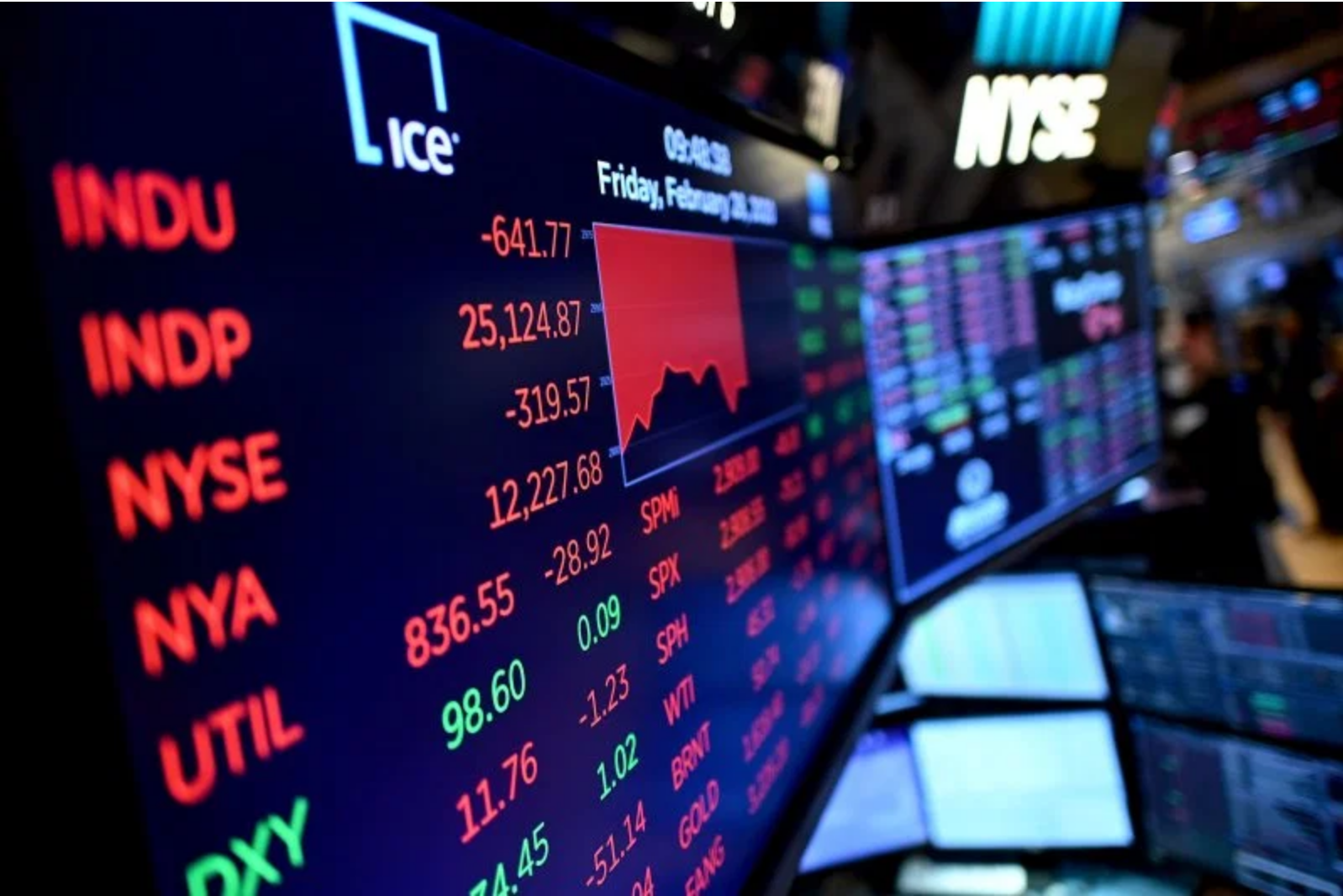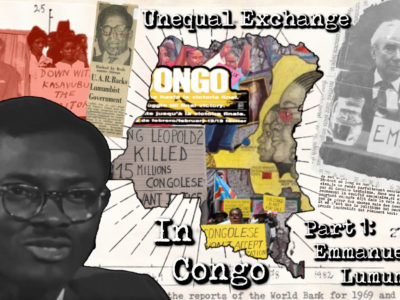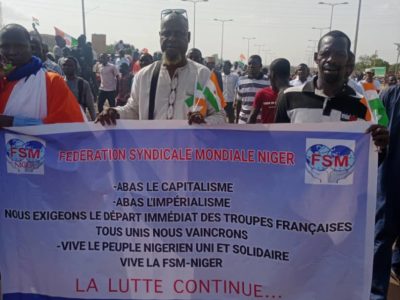Along with the late Immanuel Wallerstein, I think that globalized capitalism is in a structural crisis economically, politically, and in its relationship with nature, which leads to climate crises and now as we see to pandemics. The structural crisis entails that the system is out of balance, that conjunctures do not come in regular waves, but in sudden and uncontrolled swings. The crisis also entails political struggles worldwide, which take different forms in the Global “North” and “South” with changing and sometimes surprising and strange alliances, as the socialist alternative appears bleak due to historical reasons. For the time being it seems that the principal contradiction is between a continuation of neoliberal globalization on the one side and different forms of nationalism on the other.
I do not think the capitalist mode of production will survive the 21st century. Like other modes of production, it had a beginning and it will have an end. What will replace it is not pre-ordained. It could be worse, a non-capitalist system that retains hierarchy, exploitation, and polarization; or it could be a system based on a more democratic and egalitarian world – it all depends on our struggle.
There are however three relatively unpredictable factors in this revolutionary transition process, which could complicate the struggle for a better world in an extremely destructive manner in the coming years: climate change, pandemics, and nuclear warfare.
It is not these dangers in and of themselves that are unpredictable; we know a lot about the consequences of each danger. It is the timing and the global extent of these dangers that is unknown.
Climate change is already a reality, as everyone knows (except for Trump and the like). It is not slowing down; it is the rate of acceleration that is unclear. The question is: how big and where will the next disaster be? The political crises of neoliberalism and growing nationalism, the differences between rich and poor countries as to what should be done, make any solution within the framework of global capitalism impossible. The growing ecological and climatic problems as well as the scramble for the earth’s natural resources can trigger a revolutionary situations, in the context of sudden changes in living conditions, natural disasters and refugee flows. A “lifeboat socialism” may well be the only thing that can solve climate change.
The same goes for pandemics. On the one hand, world medicine has advanced in the last century to bring many diseases under control; however on the other hand, the way we produce food has given humanity’s old enemy, the germ, new ways to be resistant to our medicine and create new illnesses that our medicine finds difficult to combat. The list is long, AIDS, MERS, SARS, Ebola and so on. Furthermore, as long as medical production is for profit and not for the equal benefit of all people, the distribution of medicines is limited and unequal. The same goes for health systems, which have been increasingly privatized and eroded under 40 years of neoliberalism.
COVID-19 is very contagious, however not as deadly as for instance Ebola. And COVID-19 will pass. However, what will be the next pandemic? It will surely come if we continue to farm as we do now. In this race against time, how quickly will our medical knowledge progress? Furthermore, how much must we change our forms of animal and agricultural production in order to survive?
Finally, there is the danger of nuclear war. The change from neoliberal globalization under US hegemony towards a world of growing nationalism is reflected in increasing rivalry between states, primarily between the United States, China and Russia. There has been a significant increase in armaments over the last decade. More and more states are acquiring nuclear weapons and the means to launch them. In December 2019, Trump declared that military domination of space is essential for the interest for US. The interstate national rivalry can very well become the principal contradiction in the world. Even if the contradiction between USA and China remains a “cold war”, possibly with regional “deputy” conventional wars, a growing rivalry can have major consequences. On the one hand, nuclear weapons are essentially defensive weapons; the risk of retaliation, with huge consequences, is high and therefore reduces the likelihood of interstate nuclear wars. On the other hand, the actual use of nuclear weapons is in the hands of individuals and they are not always rational. There is a risk that the little red button might be in the hands of a lunatic. As a consequence, the struggle for peace, when the ruling class calls for war, is of decisive importance, and may have a revolutionary perspective
It is possible we can get through the transition from capitalism to something better, without these catastrophes occurring. However, it is also possible that they will happen. If so, they will not put a stop to the transition process, but will accelerate it and determine its direction. High on the agenda of the new world system will be measures that will reduce or even eliminate these dangers in the future.
However, let us take a view of the possible consequences of COVID-19 in the short term. The COVID-19 pandemic will pass within a year. The world population will become immune and the richer part of the world will get a vaccine. The death rate will be limited; it will not kill half the population like the bubonic plague. It is the old and infirm who will die.
How will the world economy look on the other side of COVID-19 pandemic? We will see an economic recession and a substantial reduction of global GNP. Whether this will develop into a severe crisis, we will have to see. What could counter the world economy falling into an abyss is the development of “pandemic Keynesianism” in tune with the “climate adjustment Keynesianism” we have seen growing in the last couple of years.
Normally capitalists hate state intervention and regulation. However, when the system is in deep crisis they come running to “mother state” to save them. This was the scenario in the wake of the world crisis in 1929, when state intervention pulled the world economy out of trouble.
We see the same pattern today in connection with the climate crisis. Capital once again needs the state to set the rules to slow down the climate problems. The COVID-19 pandemic will also strengthen the need for state intervention, regulations, and assistance to capital to stop the recession from becoming a terminal crisis. However, this kind of Keynesianism is “catastrophe driven”. It is only once the catastrophe is ongoing that capital asks the state to intervene and then it is often too late to avoid severe consequences.
In these days, even the most liberal capitalist is asking the state for economic assistance. Furthermore, after COVID-19 people will demand stronger public health systems to counter the next episode. Thus, the national state will become stronger in relation to capital post-Corona, which will add to the ongoing crisis of neoliberalism. Whether this is more a right- or a left-wing national state will depend on political struggle.
These kinds of catastrophes affect the balance of political forces. It seems many people react to these dangers in a nationalistic and xenophobic way, rather than with solidarity and in a global humanitarian way. You are first and foremost a citizen in the national state, which you expect to take care of you. In this way, the strong national authoritarian state is strengthened. This means that we have to become clearer about what is happening and work to develop political strategies that will counter this trend.
The states which have elements of a planned economy and the ability to develop this further, will be in the best position to recover. This means that China will come out of the COVID-19 crisis faster and stronger than the EU and the US. This will contribute to the decline of US hegemony. Furthermore, the US is more politically spilt than ever to counter this trend.
We cannot just sit back idle and wait to see whether the catastrophe happens or not. It must be an integrated part of our struggle to end capitalism to seek to minimize the risk posed by these dangers for all of humanity.
As I have said before, we are entering a dramatic and crucial epoch in the history of capitalism, where the contradictions are sharpened and where the outcome of the struggle is not simply about the victory of one class or another, but of the future of humanity and the globe. The outcome will be decided within this century.
Copenhagen 19.3.2020










